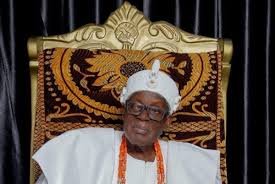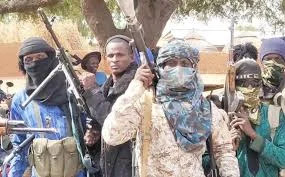As the threat posed by fake news, misinformation and disinformation continue to manifest in Nigeria and the West Africa sub-region, frontline pro-democracy think tank, the Centre for Democracy and Development (CDD, West Africa) has continued to engage critical stakeholders on how best to address the issues.
With support from the National Endowment for Democracy (NED), CDD recently engaged key media stakeholders in a robust dialogue on how best to stop the deluge of fake news, misinformation and disinformation, especially in the context of Nigeria’s and the West Africa’s sub-region’s democratic evolution.
At a recent roundtable held in Lagos, stakeholders from the media, expert panelists, and influencers converged to deliberate on the insidious influence of false narratives and their profound effect on the integrity of journalism. CDD which was represented at the roundtable by Grants Manager, Mr. Damian Ihekoronye, Research Analyst, Mr. Afolabi Adekaiyaoja and CDD War Room, Fact Checker, Ms. Chioma Chukwuka, took the audience through some of the major trends the think tank and observed and documented in the fake news, mis/disinformation ecosystem in Nigeria and the West Africa sub-region.
Participants robustly conversed on the pervasiveness of misinformation and disinformation across traditional and digital platforms, and how that is impacting societal understanding of what is true or not true. There was unanimity in the course of the conversation that false narratives are intentionally deceptive or inadvertently spread. Whether done intentionally or not, false narratives undermine public trust, exacerbate social divisions, and pose substantial threats to the democratic fabric of the nation.
Importantly, the conversation provided journalists who are on the field with the opportunity to share poignant anecdotes relating to how they navigated challenging situations due to the spread of fake news, misinformation and disinformation. Discussants were therefore emphatic in noting that false narratives impede the core tenets of journalism, corroding public confidence and enfeebling the democratic function of the press.
READ ALSO: West Africa Regional Actors Attend Conference To Tackle Disinformation
With this situation, journalists, communications managers and those charged with releasing information were enjoined to be a lot more meticulous in playing their roles, especially as they face increasing challenges in separating fact from fiction, upholding truth, and ensuring responsible reporting.
Similarly, media and countering mis/disinformation experts emphasized the urgent need to enhance media literacy among Nigerians. The point was strongly canvassed that empowering individuals with critical thinking skills would enable them to discern reliable sources, question information, and counteract the allure of false narratives. Significantly, the round table placed major emphasis on instituting comprehensive media literacy programs at both institutional and grassroots levels, in order to bolster Nigeria’s resilience against misinformation and disinformation.
Subsequently, the panellists who facilitated the discussions on Fact-Checking and verification disseminated best practices and tools for effective fact-checking, underscoring the indispensable role of journalists in debunking false information. Participants similarly endorsed the collaborative approach, urging media organizations, fact-checkers, and technology platforms to pool resources, expertise, and infrastructure. The roundtable made a case for more symbiotic partnerships fortify the media space against misinformation, while enabling journalists to relay verified information accurately.
A good number of the participants commended CDD West Africa and NED for putting together such a vibrant roundtable discussion, which they said facilitated an environment of utmost camaraderie and collaboration among media organizations, civil society entities, fact-checkers, and government stakeholders. With these alliances, the point was made that the synergies required for combating misinformation and disinformation would be a lot effective. As the roundtable drew to a close, participants gave their recommendations, including regular communication forums, shared knowledge platforms, and coordinated initiatives, for the purpose of amplifying the collective impact of all interventions.
On the recommendations and action points needed to safeguard journalism and democracy, discussants called for urgent steps to strengthen media organizations’ capacity to combat misinformation through supportive training programs, resources, and technical assistance. It was also stressed that there remains the dire need for partnerships and knowledge-sharing platforms between journalists, fact-checkers, and civil society organizations to bolster fact-checking capabilities and information verification processes.
Other action points focused on the need to prioritize the integration of media literacy programs in educational curricula, community initiatives, and information vulnerable populations. The roundtable similarly resolved to advocate for policies that promote media freedom and independence while countering the challenges posed by misinformation and disinformation.
In the end, one-day round table discussion organized by CDD with support from NED was a adjudge by participants as a resounding success in raising awareness and seeking solutions to the menace of misinformation and disinformation in Nigeria. As one participant, Azeez Olorunlomeru of The Guardian puts it: “The media landscape will become stronger, with stakeholders committed to building critical media literacy skills, fostering collaboration, and championing accurate journalism. By implementing the recommendations, a united front will combat the rising tide of misinformation, preserve journalistic integrity, and fortify Nigeria’s democratic foundations.”

























